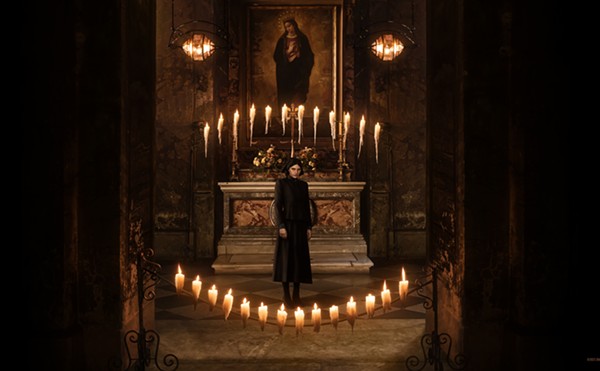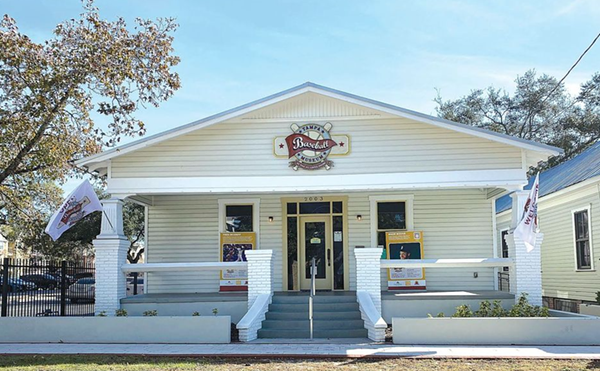Ma Rainey's Black Bottom is a wonderful play about a few hours in the life of the fabled blues singer and her accompanists, and if the uneven production at American Stage doesn't often do it justice, still it offers a few moments of inspired and inspiring theater. Most of all, it brings us the talented Sharon E. Scott as the imperious, peremptory Ma Rainey, a woman whose will is as strong as her singing voice, and who won't take any guff from the white men who make her records or the black men who play behind her.
Those four black men — Levee, Toledo, Cutler and Slow Drag — are the real focus of August Wilson's play, and the key to any production. We need to feel, as we watch them, that there's as much unity to their life offstage as there is to their music when they're on. But though the fine actors who play them — Ben Cain, Kim Sullivan, Alan Bomar Jones and Ron Bobb-Semple, respectively — are convincing individually, they seldom mesh into a credible ensemble. When any one of them has a monologue, you can depend on its power. But put them all together — and that's where they are for most of the play — and they hardly seem to know each other.
Further testing our credulity are the two usually excellent actors portraying the white recording company execs. Joe Parra plays Sturdyvant as a fretting cartoon of constant rage, and Bill Karnovsky, who typically exudes authority and intelligence, just doesn't make sense as the crabbed, oppressed Irvin.
Adding to the problems of the production is Scott Cooper's set, a spacious, high-ceilinged thing that fails to suggest the hierarchic levels of this "society" (control booth on top, recording studio beneath it, band members' room at bottom) and never signals the claustrophobic urban closeness that can lead to frayed nerves and violence.
The play has just a little plot: it's 1927, the day of Ma's recording session, and three of her band members get there first. When the fourth — the short-tempered Levee — arrives with his new shoes and his new ideas about how to play the blues, a rehearsal begins. There's a lot of talk and a little singing, and we learn that Toledo is the intellectual, Cutler's the realist, and Slow Drag is the peacemaker. Finally Ma arrives with a small entourage, and Irvin and Sturdyvant set out to record her new album.
But there are problems, several interruptions: for example, Levee wants Ma to use a daring new arrangement that he's composed, and Ma wants her stuttering nephew Sylvester to perform on record. After all conflicts are resolved — not to everyone's satisfaction — the recording session takes place. But some of that unresolved energy lingers afterwards, and danger threatens. This won't be just another routine session after all.
I've seen Ma Rainey before, and can attest to the play's force when all its elements are clicking. As for this version: yes, see it, for Sharon Scott, for Wilson's language, for the four band members individually. And you'll certainly enjoy two of the impeccably acted minor roles, Brandii as Dussie Mae and Gregory "Rico" Parker as Sylvester. But if you're not overwhelmed by the time the drama ends, don't blame it on Wilson. This is a hugely resonant work about life within and between the races, and about the emotional perversion caused by deferred dreams and defeated hopes. When it's done right, it's stunning.
Bottom line: See Ma Rainey, in spite of this production's shortcomings. The play is that special.


















